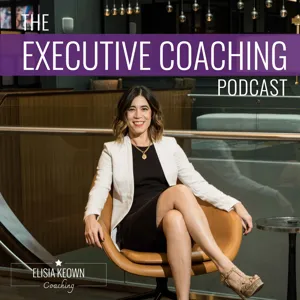Podcast Summary
The emotional side of time management: Leaders must acknowledge and address the emotional influences on their time management to effectively manage their time
Our traditional understanding of time management being solely logical, based on calendars, checklists, and tools, is incomplete. According to Rory Vaden, time management also has an emotional component. Our feelings of guilt, fear, worry, and the desire to feel successful, valued, and important influence how we use our time as much as our to-do lists or inboxes. Leaders, who have a high demand for their attention, need to acknowledge and address the emotional side of time management to effectively manage their time. Listen to the full episode for more insights from Rory Vaden on this topic.
Investing time in significant tasks for long-term benefits: Focus on tasks that matter for tomorrow and the next day to create more time in the long run
Effective time management goes beyond just understanding what's urgent and important, but also recognizing the significance of tasks. Multipliers, as opposed to managing time, have learned to create more time by focusing on tasks that matter for the long term. This shifts our perspective from only thinking about today to considering the impact on tomorrow and the next day. While we cannot create more time within a day, we can give ourselves emotional permission to invest time in significant tasks today that will yield more time-saving benefits in the future. This subtle shift in thinking allows us to truly multiply time.
Investing time for future gains: Effective leaders intentionally invest time in mundane tasks or automation to save time on repetitive work and focus on important tasks
Effective leaders understand the importance of making intentional choices today that will save them time in the future. This concept, known as "significance calculation," involves investing time in mundane tasks or developing systems that will automate repetitive work, freeing up time for more important tasks. An example of this is setting up online bill pay, which may seem insignificant but can save a significant amount of time over the long term. Automation, as one of the five permissions for multiplying time, is crucial for leaders as it allows them to delegate tasks and develop processes that will save them time in the future. This deliberate sacrifice of time in the present for future gains is the essence of the concept of "procrastinating on purpose." By embracing this mindset and making strategic investments of time, leaders can maximize their productivity and achieve greater success.
The 30x Rule: Investing in Training Others: Spending up to 30 times the task time on training someone can lead to long-term benefits, including time savings, higher quality work, and increased significance for the trainee.
Investing time and resources in training others to take on tasks can lead to significant long-term benefits, even if the initial training period requires more time than completing the task yourself. This concept, known as the 30x rule, suggests spending up to 30 times the amount of time it takes to do a task once on training someone else. While it may not make sense to trade a few minutes a day for a longer training period, the gains over the course of a year or more can be substantial. Not only does this approach free up your own time, but it also leads to higher quality production and increased feelings of significance for the person being trained. Overall, this mindset shift can lead to elevated thinking and improved team performance.
Give yourself and others permission of imperfection: Embrace imperfection to allow team specialization and growth, increasing long-term productivity
Leaders need to give themselves and others the permission of imperfection in order to multiply time and produce better results in the long run. This can be particularly challenging for leaders who have achieved success through perfectionism, but embracing imperfection in the short term allows team members to specialize and eventually surpass the leader's abilities. As Andy Stanley says, "Leadership isn't about getting things done right, it's about getting things done through other people." Embracing this perspective requires patience, grace, and a long-term perspective, as well as the installation of systems and training to help team members grow. By honoring time and stepping towards imperfection, leaders can create a snowball effect of growth and compounding results.
Focus on essential tasks using the focus funnel method: Eliminate, automate, delegate, or prioritize tasks based on importance and urgency using the focus funnel method. Delegate tasks that can be done just as well by someone else to improve productivity and organizational growth.
Effective time management involves eliminating, automating, delegating, and prioritizing tasks based on their importance and urgency. The focus funnel method suggested by Rory Vaden encourages us to evaluate each task by asking if it can be eliminated, automated, or delegated before determining if it must be done right now. This approach helps prevent the tyranny of the urgent and allows us to focus on what truly matters. Many leaders struggle with delegation due to a fear of imperfection or a belief that they can do it faster or better. However, the 80% rule, or delegating tasks that can be done just as well by someone else, can lead to organizational growth and improved productivity. Remember, saying yes to one thing means saying no to others, so it's essential to be intentional about what we choose to prioritize.
Effective time management includes concentration and deliberate procrastination: Concentrate on tasks requiring immediate action, eliminate, automate, or delegate tasks that can be done in advance, and intentionally delay tasks that don't need to be done right away for prioritization and focus.
Effective time management involves both concentration and deliberate procrastination. Concentrate when action is required immediately, and eliminate, automate, or delegate tasks that can be done in advance. However, when an activity doesn't need to be done right away, it's beneficial to intentionally delay it, or "procrastinate on purpose." This practice allows us to prioritize important activities, such as prayer or meditation, and avoid distractions like email or social media. Procrastination and patience may seem similar, as they both involve waiting, but the difference lies in the reason for the wait. Procrastination comes from avoidance, while patience involves faith and trust. The Focus Funnel, which includes these concepts, is a valuable tool for managing focus and productivity. By filtering tasks through the Focus Funnel, we can eliminate unnecessary tasks, concentrate on important ones, and intentionally delay tasks that can be done later.
Managing Energy and Time Effectively: Saying no, focusing on key areas, automating and delegating, procrastinating purposefully, and leading with a clear vision can help manage time and energy for optimal productivity
Effective time management involves not only managing time but also managing energy. Saying no and focusing on a few key areas can help us become great and eliminate distractions. Automation and delegation can help us free up time and energy for more important tasks. Procrastinating on purpose can help us match tasks to the best time and energy levels for optimal productivity. Leadership, as the art of moving people into productive action, requires a clear vision to engage discipline and bring out the best in individuals. By focusing on a compelling vision, we can tap into dormant talents and become far greater than we ever imagined.
Understanding long-term goals boosts motivation and productivity: Having a clear vision for the future motivates individuals to take action, prioritize tasks, and find meaning in their work beyond personal gain.
Having a clear vision for the future is essential for motivation and productivity. Without it, people may struggle to take action and may prioritize safety and comfort over success. When individuals understand how their daily tasks contribute to their long-term goals, they are more likely to be engaged and productive. Additionally, having a purpose beyond personal gain can be a powerful driver for discipline and motivation. The speaker shared that after focusing on self-centered goals for much of their life, they found greater fulfillment in helping others succeed. By living in alignment with their unique strengths and passions, individuals can experience a sense of meaning and satisfaction that goes beyond personal advancement.
Finding purpose through utility and adding value to others: Successful individuals and leaders focus on being useful to others and activating the best in themselves, leading to motivation and alignment with God's design, and successful organizations embody this principle.
Finding purpose in life is not about waiting for a divine revelation, but rather about being useful and adding value to others. According to the discussion, we often think of purpose as a grand, fluffy concept, but in reality, it's about practical utility. Every tool, including ourselves, has a purpose, and it's frustrating when we or they don't fulfill that purpose. As individuals and leaders, we should focus on being useful to others and activating the best in ourselves. This not only motivates us but also aligns with how God designed us to be. Successful people are those who help others be successful, and organizations like Brand Builder's Group embody this principle. A favorite recent TV series, according to the speaker, is "Modern Family," and a favorite leadership quote is "Leadership is not about getting things done right, it's about getting things done through other people" by Andy Stanley. These insights offer a refreshing perspective on the importance of utility and collaboration in finding and fulfilling our purpose.
Effective communication and prioritization in leadership: Failing to clarify priorities for team members can lead to wasted time and resources. Be genuine and authentic as a leader to allow people to connect with a real person.
Effective communication and prioritization are crucial elements of strong leadership. Rory Vaden shared how failing to clarify priorities for team members can lead to wasted time and resources. He also expressed his current focus on personal growth in overcoming self-centeredness and becoming more present and useful to others. A book that has impacted Rory's leadership approach is "5 Dysfunctions of a Team" by Patrick Lencioni. Rory emphasized the importance of being genuine and authentic as a leader, giving permission to be imperfect and allowing people to connect with a real person rather than an idealized figure.






